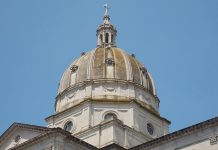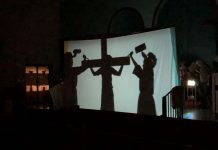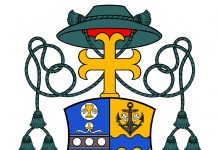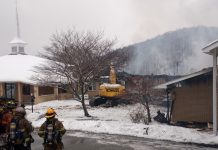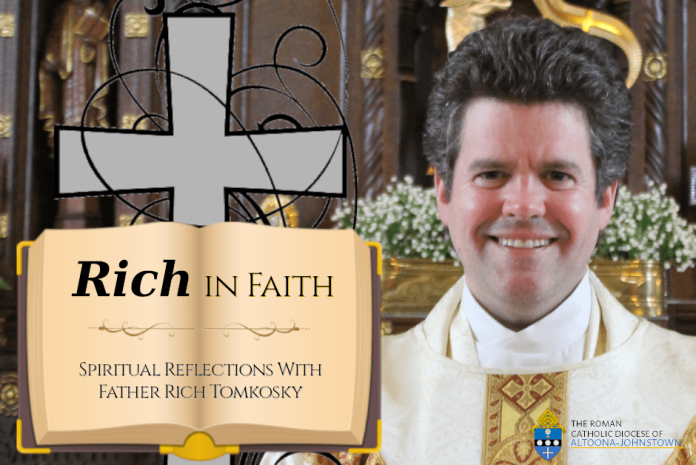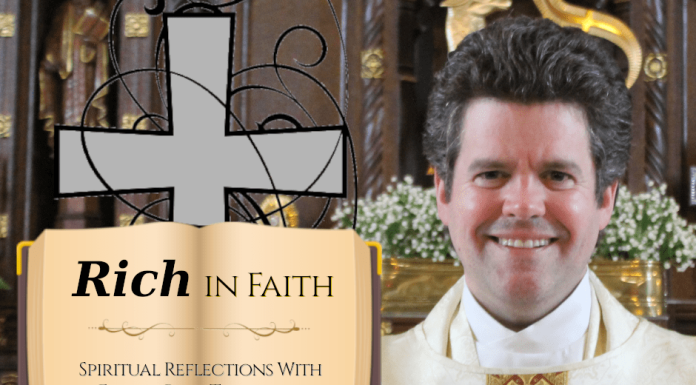By Father Rich Tomkosky
“If Christ was not raised (from the dead), your faith is worthless. You are still in your sins, and those who have fallen asleep in Christ are the deadest of the dead. If our hopes in Christ are limited to this life only, we are the most pitiable of men.” (1 Corth 15: 17-19).
The Resurrection of Jesus is the foundation of our faith as Catholics. It gives our faith ultimate meaning and purpose, and points to the supernatural destiny of His followers. Jesus tells us, “I am the resurrection and the life; whoever believes in me even if he dies, will live, and everyone who lives and believes in me will never die.” And then He looks at Martha, and now He looks at us and directly says, “Do you believe this?” Do we believe this reality? That Jesus truly is the Resurrection and the Life, the victor over satan, sin and death? Or have we on some level adopted the world’s view of death: the end is the end? And then we can do whatever we want with a person’s dead body: put ashes in jewelry, have the urn above the fireplace, scatter their ashes at the hunting ground/ocean, put them at Heinz field etc. It shows a profound lack of respect for the fact that humans are made in the image of God and the body, if baptized, is a temple of the Holy Spirit. Give people’s remains a proper burial at a cemetery where you can go and remember and pray for them in case they are in Purgatory – whether in a coffin or an urn – one of the corporeal works of mercy of the Church.
Death came into the world because our first parents listened to the lie of the devil (see Genesis chapter 3), and as a result of sin, we now die (verse 19) – which is contrary to God’s original plan (see Catechism of the Catholic Church par 1008). But death wasn’t just a punishment for sin; it also was a remedy. Have we ever thought on this angle on death? The great saint of the early Church, Saint Ambrose, has a poignant reflection on this reality, on the occasion of his own brother’s death, which I often quote at funeral Masses (see The Liturgy of the Hours: Vol. 4: November 2 OOR, pp. 1538 – 1540): “Death was not part of nature; it became part of nature. God did not decree death from the beginning; He prescribed it as a remedy. Human life was condemned because of sin to unremitting labor and unbearable sorrow and so began to experience the burden of wretchedness. There had to be a limit to its evils; death had to restore what life had forfeited. Without the assistance of grace, immortality is more of a burden than a blessing.” How true that is! Can you imagine living in this life, in this “valley of tears,” forever? Yes, there is much good in this life, but also much suffering. Most of us come to see this reality increasingly as we get older and our bodies and minds begin to show the effects of age, and we deal with the difficulties and often grave sorrows of life, especially the death of many of our loved ones: family and friends. In reality, to live in this present state forever would be more of a vision of Hell than Heaven: with all the pain, the contradictions, the misunderstandings and difficulties of life going on forever and ever. Fortunately for us, Jesus calls us to a better life after this one; but that can only happen if we go through the passover of earthly death. Remember Jesus raised Lazarus as a spiritual sign of His own ultimate victory over death through His Resurrection; but Lazarus, like all of us mortals, would eventually die to this earthly life.
Death becomes a gift if united to Christ’s saving death. Why? Because in Christ we share in the victory over satan, sin, and death and so come to new life in Him. The Lord Jesus has transformed the meaning of death forever because He was sinless, and by freely submitting Himself to death, He broke the intimate bond between sin and death. Now by our reception of the Sacrament of Baptism, we are incorporated into His victory over death (see Catechism of the Catholic Church, par 1010). Remember the Lord allowed death to enter this world, so that sin might come to an end. But He gave us the Resurrection of the dead, so that our human nature might not end once more in death. Death was to bring guilt to an end, and the Resurrection was to enable our nature to continue forever. The key to entering into this new reality of supernatural life after our Baptism is through the worthy reception of the Sacraments and by living a life of obedient faith. If you are afraid of death, ask Our Lady of Sorrows and Saint Joseph, the patron of a holy death, to help you through their powerful intercession with God. Pray that you and your loved ones also receive the grace of a provided death: namely the worthy reception of the last Sacraments of Confession, Anointing, and Viaticum (our last Holy Communion) before death. Make sure to call a priest if you sense someone you know may be dying. And in charity remember every day to pray for the dying throughout the world that they may be blessed with the grace of final repentance and protection from the evil one as they take their last breaths on earth – as it is the final battle for their souls, and praying the chaplet of Divine Mercy, if possible in the presence of the dying person, is particularly powerful in helping the dying to accept the grace of salvation from the Lord.
Finally, when we do lose a loved one to earthly death, it is a transition moment for those of us left behind. We need to ask the Lord for healing of the wound of loss and to pray for our loved one’s soul, especially by offering Masses for them, which is the most perfect prayer to help the living and the dead, as well as praying the Divine Mercy chaplet and Rosary for them. We always pray for the dead as Catholics (one of the Spiritual Works of Mercy) since we don’t know if they need to be purified of any sins. The benefit of the doubt goes to a soul needing some purification (being in Purgatory), and if by God’s grace they went straight to Heaven (very rare according to Saint Teresa of Avila: three people she knew who were given this grace), God will use those prayers to help someone else – so it is a no-lose situation to pray for our loved one’s soul; also remember to pray daily for the forgotten souls in Purgatory, – what an act of spiritual charity.
We also have one of two options long term when we deal with loss of a loved one to earthly death: we can draw closer to the Lord and focus more on the things of eternity rather than the passing things of this world. Or conversely, we can turn farther away from God in confusion and spite over death, which is what the devil wants us to do: to get mad at God for taking our loved one out of this life – forgetting of course that all of us must die at some point to complete our destiny as human beings, which is to be with the Lord forever. Don’t listen to the devil – turn to Jesus who alone can help us to make sense of death. Remember the Lord Jesus is the Resurrection and the Life. He is the victor over death. Trust Him! God bless you.
Father Rich Tomkosky is the Pastor of Saint Thomas the Apostle Parish in Bedford and the Pastor of Seven Dolors of the Blessed Virgin Mary Parish in Beans Cove.



